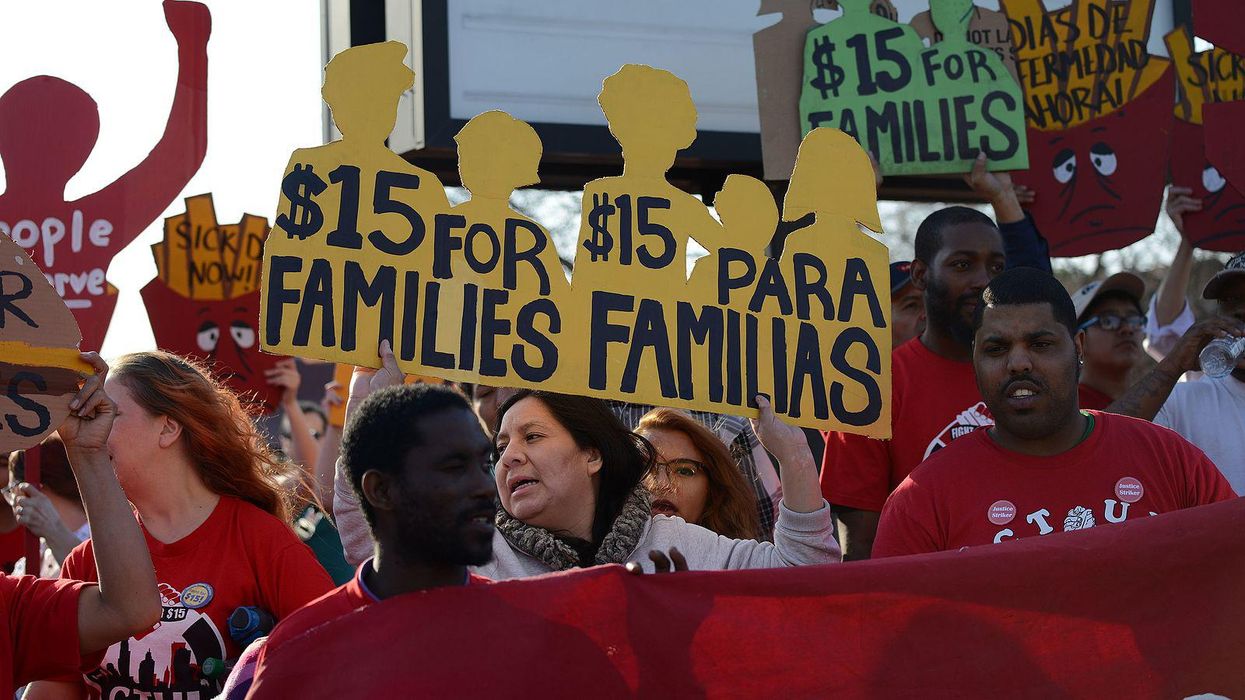To Fix The Labor Shortage, Start With The Wage Shortage
A recent newspaper article had an astonishing headline: "Labor shortages end when wages rise."
Gosh, Captain Obvious, what an amazing discovery! Someone notify the Nobel Prize committee, for this revolutionary revelation about How-Things-Work surely will win this year's prize in economics. Better yet, someone notify Sen. Mitch McConnell and that whole gaggle of Republican governors whose theory of labor economics begins and ends with the medieval demand that workers be whacked with a stick to make them do what the bosses want.
At issue is the furious complaint by restaurant chains, nursing homes, call centers, Big Ag, and other low-wage employers that they have a critical labor shortage. It seems that millions of workers today are hesitant to take jobs because there's no affordable child care, or the jobs they're offered expose them and their families to illness and death from COVID-19, or the work itself is abusive and demeaning... or all of the above.
Business chieftains wail that, with the economy reopening, they've been advertising thousands of jobs for waiters, nursing assistants, poultry workers, and such, but they can't get enough takers. So, the Congress critters and governors who obsequiously serve the corporate powers have rushed to their rescue. Shouting, "Whack 'em with a stick!" these mingy politicians are stripping away jobless benefits for America's workers, trying to leave them with no choice but to take any crappy job they're offered. It gives new meaning to the term "workforce."
In fact, the bosses themselves already have an honest way to get the workers they need without calling in government muscle: Offer fair wages! As the owner of a small chain of restaurants in Atlanta notes, the struggle to find the staff he needs suddenly turned easy when he stopped lowballing wages, going from $8 to $15 an hour. Not only did he get the workers he needed, but he says, "We started to get a better quality of applicants." That translated to better service, happier customers, and more business.
The real economic factor in play here is not wages; it's value. If you treat employees as cheap, then that's what you'll get. But if you view them as valuable assets, then that's what they'll be — and you'll all be better off.
At a recent congressional hearing on America's so-called labor shortage that corporate bosses have been wailing about, mega-banker Jamie Dimon, CEO of JPMorgan Chase, offered this insight: "People actually have a lot of money, and they don't particularly feel like going back to work."
Uh... Jamie... a lot of money? Most people are living paycheck to paycheck, and since COVID-19 hit, millions of Americans have lost their jobs, savings and even homes. So, they're not exactly lolly-gagging around the house, counting their cash.
Instead of listening to the uber-rich class ignorance of Dimon (who pocketed $35 million last year), Congress ought to be listening to actual workers explaining why they're not rushing back to the jobs being offered by restaurant chains and poultry factories. They would point out that there is no labor shortage; there's a wage shortage.
More fundamentally, there's a fairness shortage. It was not lost on restaurant workers, for example, that while millions of them were jobless last year, their corporate CEOs were grabbing millions, buying yachts, and living large. Yet more than half of laid-off restaurant workers couldn't get unemployment benefits because their wages had been too low to qualify. Then there's the high risk of COVID-19 exposure for restaurant employees, an appalling level of sexual harassment in their workplace, and demeaning treatment from abusive bosses and customers.
No surprise, then, that more than half of employees said in a recent survey that they're not going back to those jobs. After all, even a dog knows the difference between being stumbled over and being kicked!
So rather than demanding that government officials force workers to return to the old exploitative system, corporate giants should try the free-enterprise solution right at their fingertips: Raise pay, improve conditions, and show respect. Create a place where people want to work!
For a straightforward view from workers themselves, go to the advocacy group, OneFairWage.site.
To find out more about Jim Hightower and read features by other Creators Syndicate writers and cartoonists, visit the Creators webpage at www.creators.com.


